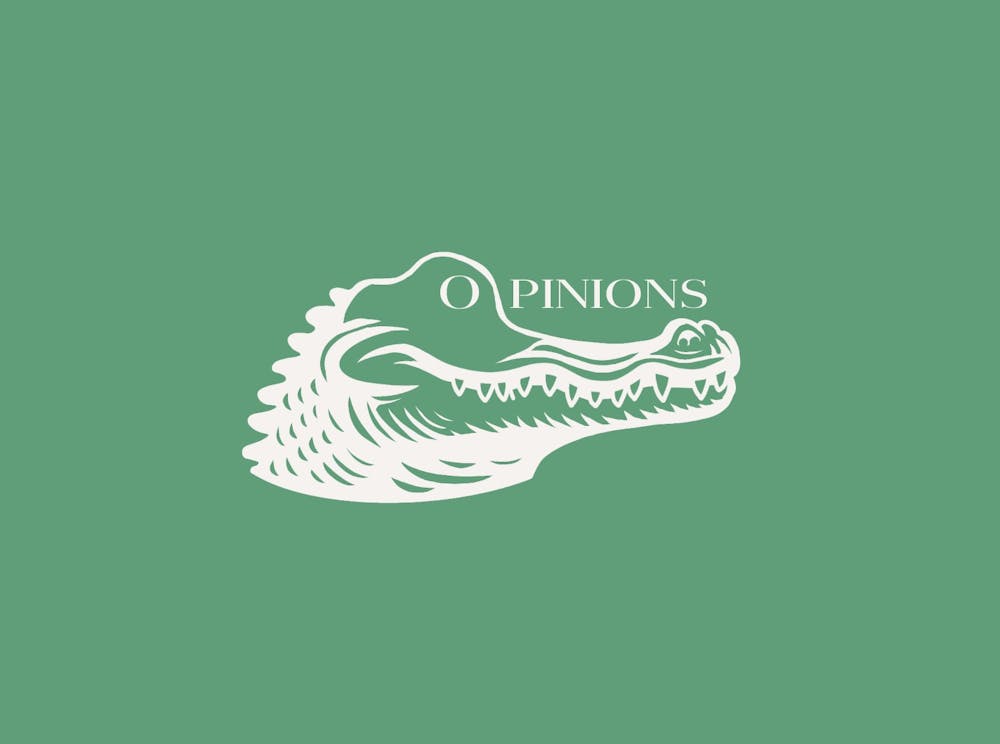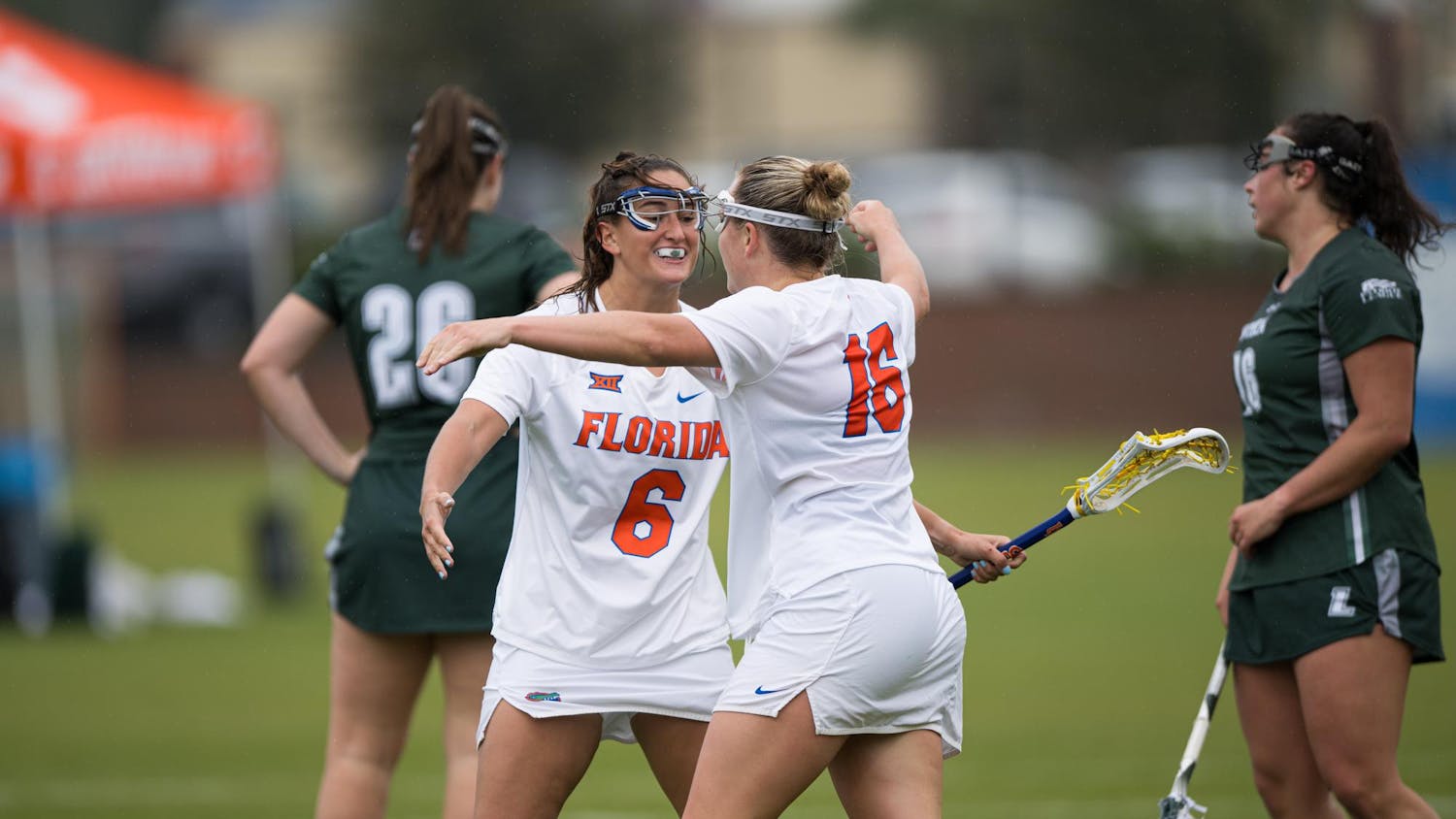My name is Anghelo Josh Gangano. My parents gave me a Western middle name as a tribute to one of my white American grandfathers. Both my mother and father grew up as orphans from their respective countries, South Korea and the Philippines, and were adopted by American families as children. My entire life I have been told, “Your middle name doesn’t match,” and I used to be ashamed of it. I even used to wish I had a more Western first name to fit in. I have served many roles at UF over the past several years: an organic chemistry teaching assistant, a graduate student senator, the club tennis treasurer and a Graduate Assistants United officer, but first and foremost, I am Asian American. I can choose my profession and my politics, but I will never be able to choose my ethnicity.
As a chemist, I would like you to engage in this brief scientific thought experiment. Imagine a homogenous mixture, a combination of particles that is uniform throughout, such as the blood in your body. Now imagine you have a nosebleed, and you lean over a sink full of water. The blood will disperse throughout the water and change from dark red to bright red to pink as it gets less and less concentrated. The sink now contains a homogeneous solution of blood and water. Chemists love to work with homogenous solutions because they are predictable, well-behaved, obedient. But while it might be ideal for chemical reactions, homogeneity poses significant risks to our society.
If our society was homogenous, with a uniform distribution of thoughts and beliefs, how would we challenge each other to do something never done before? How would we break the sound barrier or eradicate disease? How would we grow? How would we fall in love with new food or music? How would we learn to be kinder to one another? A homogenous society does not provide room for thoughts or ideas that challenge the status quo.
I love teaching students who disagree with me. It is a beautiful battle of logic, reasoning and peer-reviewed citations, waged to convince students of complex concepts that may be counterintuitive at first glance. A student’s background, ethnicity, beliefs, religion, sexuality, priorities, value system and life experiences all contribute to how they as an individual view the world and the classroom, and exposure to a diversity of these viewpoints is critical for learning. If all my students and peers and I were to think and act the same, we would rarely learn anything new, about ourselves or about the universe.
These days, I worry that the values of diversity are coming under fire, and that Asian Americans are situated among those most vulnerable to the fallout. I sense that others worry about this too.
In just the last couple of years, how many laws have been enacted that prevent Asian Americans and other minority groups from being welcomed into this university, city or state?
In the 2022-2023 school year, Florida led the nation with the most book bans from public schools and libraries. One of the most cited subject matters included “themes of race or racism”.
In 2023, UF bans students and postdoctoral candidates from seven “countries of concern.” China and North Korea make the list.
In 2023, UF bans the use of several internationally-owned apps from campus Wi-Fi and campus systems, including Chinese-owned WeChat and TikTok.
In 2023, Florida bans Chinese citizens from purchasing land in Florida, and imposes fines for realtors or landowners who sell to Chinese citizens illegally.
In 2024, UF bans all DEI programs and faculty, leaving dozens jobless and pulling 5 million dollars out of DEI initiatives.
I have always believed diversity is my strongest trait. To be Korean, Filipino and American has provided me with experiences and opportunities that I cherish. It should be celebrated, not shunned, and while it’s getting harder to do, I try to wear all my names with pride.
I have heard international students worry about their visa status, about “how long until I’m not allowed here anymore.” I have heard professors who are frustrated because they cannot recruit top talent for fear of retribution by the state. I am worried this environment of anti-Asian sentiment will generate hate not unlike the hate we observed in the wake of COVID-19: 40% of Asian -Americans reported they personally know someone who was attacked or threatened because of their race following the pandemic.
Most proponents of Florida’s new laws will say they exist for security, or to ensure the state and its people are free from foreign influence and bad actors. I am not trying to invalidate those claims. I, of course, have no expertise in this field, but I believe, unequivocally, that marginalizing and discriminating against our Asian-American brothers and sisters is not the solution. I want us to be a society whose laws are not imposed out of fear or hate, and do not generate an atmosphere that segregates based on your birthplace. Nobody gets to choose where they were born.
The phrase “blood in the water” is often used to describe how once blood has entered a body of water, predators will detect it and come rushing in. Florida is our water, and racist, xenophobic laws are the blood. I wonder how long it will take until other states and countries see the example we have set and rush to follow suit?
Anghelo Josh Gangano is a Chemistry PhD candidate at UF.






